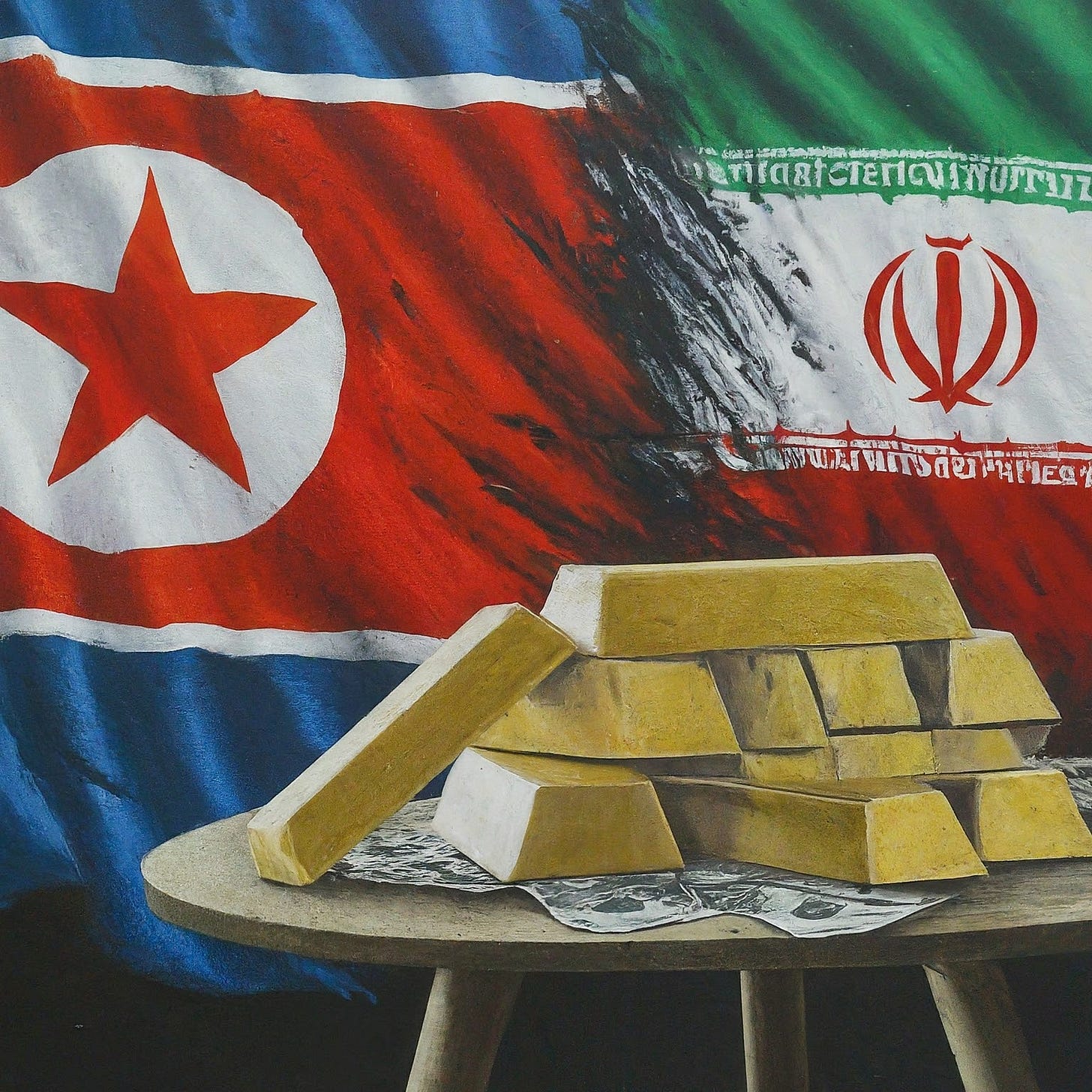New database on nonproliferation and strategic trade; DPRK missile with US parts; Iran talks with Hungary; Halkbank wants immunity
Prohibited Transactions for the week of 26 Feb 2024 (#38)
//Hi everyone, thanks for reading! I wanted to kick this issue off by highlighting a newly established database, the “GP Nonproliferation and Strategic Trade Knowledge Hub.” Its objective “is to connect users to the resources they need to prioritise proliferation threats, identify appropriate responses, develop forward-thinking approaches, learn from existing best practices, and mitigate uncertainty.” For banking and fintech folks, the knowledge hub includes resources on proliferation finance (PF). In my experience, compliance officers covering PF or sanctions issues usually rely on external resources to help supplement their understanding of these risks, and this database can ensure they’re keeping up to date with the literature. (I’m not affiliated with this project; I just went to an online presentation about it, and it looks to be useful).
Also, as you may note below, I’m changing the format of the newsletter a bit in hopes of making it more focused. Let me know if you have any thoughts on it!
North Korea
The Conflict Armament Research (CAR) group studied the remnants of a North Korean ballistic missile used by Russia to attack Ukraine. They identified 290 components, of which 75 percent of those parts are linked to companies incorporated in the US, 16 percent are linked to companies incorporated in Europe (Germany, Switzerland, the Netherlands), and nine percent of components are linked to companies incorporated in Asia (Singapore, Japan, the PRC, and Taiwan). CAR also concluded that the missile could not have been produced before March 2023. //This is important documentation to have, but unsurprising given that many of the missile parts may be commercially available off the shelf components that can easily be purchased with little suspicion. Banks would have a difficult time flagging transactions for these types of electronic goods as suspicious, unless they could tie the purchaser to the DPRK’s illicit networks. This highlights the importance of being able to identify illicit networks beyond companies that have been sanctioned.
The US State Department stated that since September 2023, the DPRK transferred more than 10,000 containers of munitions or munitions-related materials to Russia.
South Korea’s defense minister said that DPRK munitions factories are operating at full capacity to supply weapons to Russia in exchange for food and other necessities.
North Korean workers in Chinese factories processing seafood face grueling work conditions, stolen wages, and sexual violence from managers. Many of these factories export their processed seafood to companies which supply major US retailers and grocery chains. //The US companies claim they see no indications of North Korean workers being used by their Chinese suppliers, but it is unlikely they would look too hard considering the low prices they are paying for the seafood. US and international banks are processing the payments from the US companies to these PRC-based factories, which essentially means that banks are facilitating transactions between the US and North Korea via Chinese middlemen.
Some North Koreans in Dandong, China, are reportedly refusing to work and instead want to return to the DPRK, following protracted stays in the PRC.
__
The DPRK appears to be de-facto nationalizing the inter-Korean Kaesong Industrial Complex, using the remaining factories and equipment to develop a new industrial base for the city.
Germany, Sweden, Switzerland and the UK are in beginning stages of talks with the DPRK about reopening their respective embassies in Pyongyang.
Iran
In an interview with Iranian media, Hungary’s Minister of Foreign Affairs and Trade said that sanctions against Iran make “it really challenging to build effective economic and trade cooperation between the two countries. But challenging does not mean impossible,” and that Hungary could be viewed as a trade gateway to Europe for Iran. The two nations signed a number of memorandums of understanding (MOUs) to increase economic cooperation, and Iran’s finance minister asked for an expansion of banking and insurance ties between Tehran and Budapest. //Enhanced banking ties are always open for abuse and Hungary could provide another set of options for Iran to evade sanctions.
Iran and Russia signed a series of MOUs following economic meetings, in areas including oil and gas, banking and finance, transportation, information technology, trade and investment, business groups, science and education, energy, standards, sports, customs, agriculture, and industry. Additionally, Iran’s Oil Ministry will be cooperating on smart tracking technology for oil and gas pipelines with Russia’s Transneft; there are plans for Iran-Russia gas cooperation; and there is an agreement to “launch new airlines between the two countries.” //Will be curious to see if the two countries really do a joint venture airline. Iran’s inability to get its hands on spare parts for its existing planes has been a longstanding problem, so it’s unclear how a whole new airline will help the situation, unless it’s totally dependent on Russia for parts.
Iran’s ambassador to Russia stated that the export of Iranian non-oil goods to Russia totaled USD2 billion in 2023.
__
Contracts worth USD2.7 billion have been signed for 300 investment packages at seven of Iran’s free trade zones (FTZs) between March 2023 and January 2024.
The Taliban have invested USD35 million in Iran’s Chabahar port, focusing on commercial, residential and administrative projects.
Following a 10 year delay, Islamabad is beginning work on a portion of an Iran-Pakistan gas pipeline in its territory. When completed, it will be able to transfer 750 million cubic feet of gas daily from Iran.
Turkey’s Halkbank argued to a US appeals court it should have immunity from charges that it helped Tehran secretly evade US sanctions and moved USD20 billion in Iranian funds.

